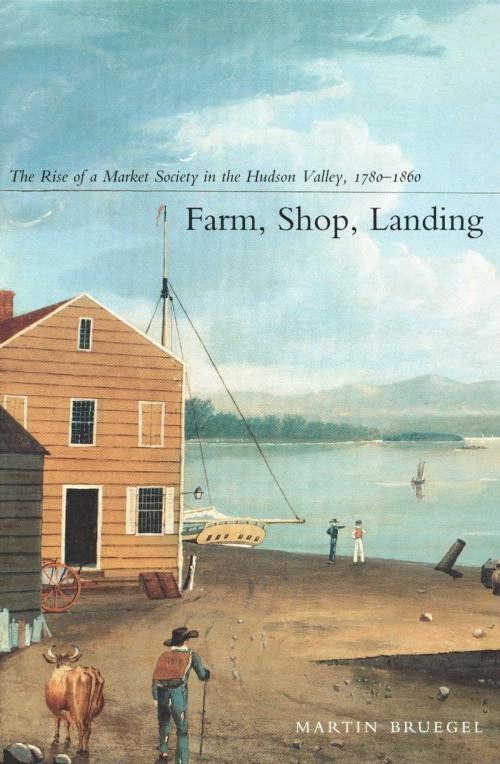Farm, Shop, Landing
The Rise of a Market Society in the Hudson Valley, 1780–1860
Business & Finance, Economics, Economic History| Author: | Martin Bruegel | ISBN: | 9780822383390 |
| Publisher: | Duke University Press | Publication: | April 24, 2002 |
| Imprint: | Duke University Press Books | Language: | English |
| Author: | Martin Bruegel |
| ISBN: | 9780822383390 |
| Publisher: | Duke University Press |
| Publication: | April 24, 2002 |
| Imprint: | Duke University Press Books |
| Language: | English |
At the turn of the nineteenth century, when the word “capital” first found its way into the vocabulary of mid-Hudson Valley residents, the term irrevocably marked the profound change that had transformed the region from an inward-looking, rural community into a participant in an emerging market economy. In Farm, Shop, Landing Martin Bruegel turns his attention to the daily lives of merchants, artisans, and farmers who lived and worked along the Hudson River in the decades following the American Revolution to explain how the seeds of capitalism were spread on rural U.S. soil.
Combining theoretical rigor with extensive archival research, Bruegel’s account diverges from other historiographies of nineteenth-century economic development. It challenges the assumption that the coexistence of long-distance trade, private property, and entrepreneurial activity lead to one inescapable outcome: a market economy either wholeheartedly embraced or entirely rejected by its members. When Bruegel tells the story of farmer William Coventry struggling in the face of bad harvests, widow Mary Livingston battling her tenants, blacksmith Samuel Fowks perfecting the cast-iron plough, and Hannah Bushnell sending her butter to market, Bruegel shows that the social conventions of a particular community, and the real struggles and hopes of individuals, actively mold the evolving economic order. Ultimately, then, Farm, Shop, Landing suggests that the process of modernization must be understood as the result of the simultaneous and often contentious interplay of social and economic spheres.
At the turn of the nineteenth century, when the word “capital” first found its way into the vocabulary of mid-Hudson Valley residents, the term irrevocably marked the profound change that had transformed the region from an inward-looking, rural community into a participant in an emerging market economy. In Farm, Shop, Landing Martin Bruegel turns his attention to the daily lives of merchants, artisans, and farmers who lived and worked along the Hudson River in the decades following the American Revolution to explain how the seeds of capitalism were spread on rural U.S. soil.
Combining theoretical rigor with extensive archival research, Bruegel’s account diverges from other historiographies of nineteenth-century economic development. It challenges the assumption that the coexistence of long-distance trade, private property, and entrepreneurial activity lead to one inescapable outcome: a market economy either wholeheartedly embraced or entirely rejected by its members. When Bruegel tells the story of farmer William Coventry struggling in the face of bad harvests, widow Mary Livingston battling her tenants, blacksmith Samuel Fowks perfecting the cast-iron plough, and Hannah Bushnell sending her butter to market, Bruegel shows that the social conventions of a particular community, and the real struggles and hopes of individuals, actively mold the evolving economic order. Ultimately, then, Farm, Shop, Landing suggests that the process of modernization must be understood as the result of the simultaneous and often contentious interplay of social and economic spheres.















